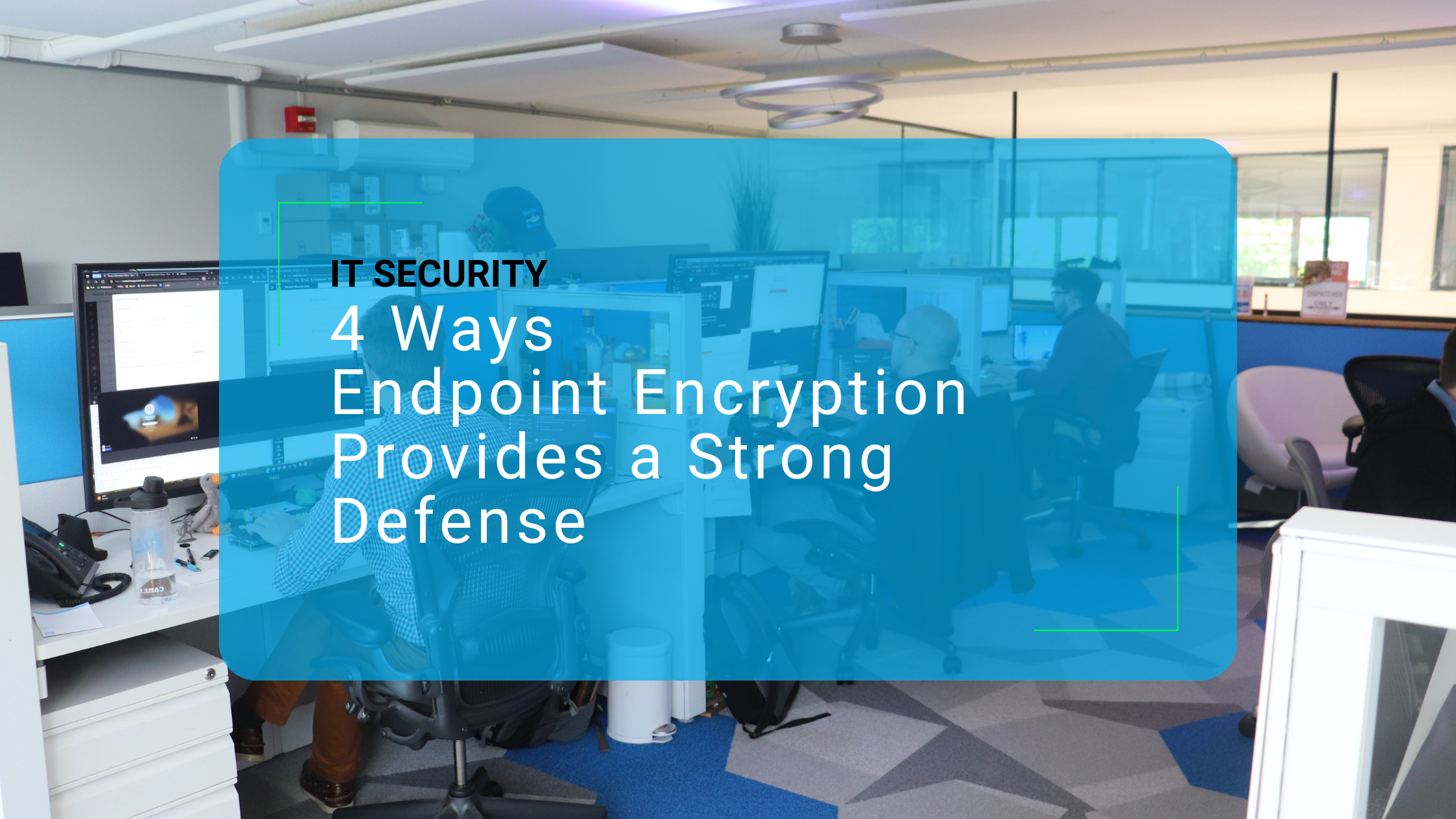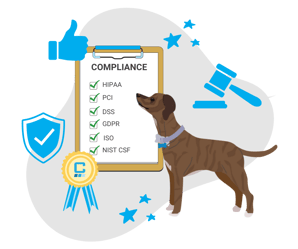
In today's digital age, businesses are increasingly reliant on endpoint devices, such as laptops, desktops, and mobile phones. These devices often contain sensitive data, such as customer PII, financial information, and intellectual property. As a result, it is critical for businesses to implement endpoint encryption to protect this data from unauthorized access.
What is Encryption in Cybersecurity?
Endpoint encryption is the process of scrambling data so that it is unreadable without the correct decryption key. This makes it difficult for unauthorized users to access data even if they have physical possession of an endpoint device.
There are many benefits to implementing endpoint encryption, including:
Protection against data theft
Endpoint encryption can help protect data from being stolen by unauthorized users, whether they are external attackers or insiders. Another way that endpoint encryption provides a strong defense is that it can help to prevent data from being stolen by malware. Malware is often designed to steal data, but it cannot access encrypted data. As for debatably the worst instance of malicious behavior, endpoint encryption can help to prevent data from being stolen by insiders. Insiders are employees who have authorized access to an organization's systems, but who may misuse their access to steal data. Endpoint encryption can help to prevent insiders from stealing data as long as the employee doesn't have the ability to decrypt the code.
Compliance with regulations
Various compliance regulations require businesses to safeguard sensitive data. Endpoint encryption is a crucial tool that can assist businesses in meeting these regulatory requirements in similar ways. Regulations such as HIPAA, PCI DSS, GDPR, as well as general security standards like ISO and NIST CSF, necessitate data encryption. While the specific rationale may differ between regulations, the ultimate objective is simple: to ensure the protection of the data held by your company. For instance, HIPAA focuses on safeguarding Personally Identifiable Information (PII) and Protected Health Information (PHI), while PCI DSS encompasses the protection of stored credit card data.
Prevention of data loss
If an endpoint device is lost or stolen, endpoint encryption can help prevent the loss of sensitive data. There are two overarching points in which encryption is a niche assistant in prevention of data loss.
- It helps to protect data in transit. When endpoint encryption is used in conjunction with a VPN, it can help to protect data that is being transferred over the network. This is because the data will be encrypted before it is sent over the network, and it will only be decrypted once it reaches its destination.
- It helps to protect data at rest. When endpoint encryption is used, even if an attacker gains physical access to an endpoint device, they will not be able to access the sensitive data that is stored on the device. This is because the data will be encrypted and unreadable to unauthorized users.
Improved security posture
Endpoint encryption can help improve an organization's overall security posture by making it more difficult for attackers to gain access to sensitive data. A security posture is the combination of solutions that your company has in place to keep data and information secure. Furthermore, what your company is actively doing to keep bad actors out of the system. Having endpoint encryption implemented is a massive step towards a good cyber hygiene.
difficult for attackers to gain access to sensitive data. A security posture is the combination of solutions that your company has in place to keep data and information secure. Furthermore, what your company is actively doing to keep bad actors out of the system. Having endpoint encryption implemented is a massive step towards a good cyber hygiene.
There are a number of different endpoint encryption solutions available, each with its own strengths and weaknesses. Some of the most common types of endpoint encryption include:
- Full-disk encryption: The full disk encryption meaning is that it encrypts all of the data on an endpoint device. Full disk encryption protects the operating system, applications, and user data.
- Removable device encryption: This type of encryption encrypts data on removable devices, such as USB drives and SD cards.
- Folder encryption: This type of encryption encrypts specific folders or files on an endpoint device.
- Transparent file encryption: This type of encryption encrypts files as they are being created or opened, so that users do not have to manually encrypt or decrypt files.
The best type of endpoint encryption for a particular business will depend on the specific needs of the organization. However, all businesses should consider implementing endpoint encryption as part of their overall security strategy.
Here are some business scenarios where endpoint encryption can help protect sensitive data:
- Lost or stolen devices: If an endpoint device is lost or stolen, endpoint encryption can help prevent unauthorized users from accessing the data on the device.
- Transfer of confidential information: Endpoint encryption can help protect confidential information that is being transferred between endpoints.
- Copying of confidential files: Endpoint encryption can help prevent unauthorized users from copying confidential files from an endpoint device.
- Corrupted files: Endpoint encryption can help protect files from being corrupted, even if the endpoint device is damaged.
If you're looking for a way to protect your sensitive data, endpoint encryption is a great option. Book a meeting or contact us today to see which endpoint encryption solution fits your business, and how to get it implemented to your organization!




